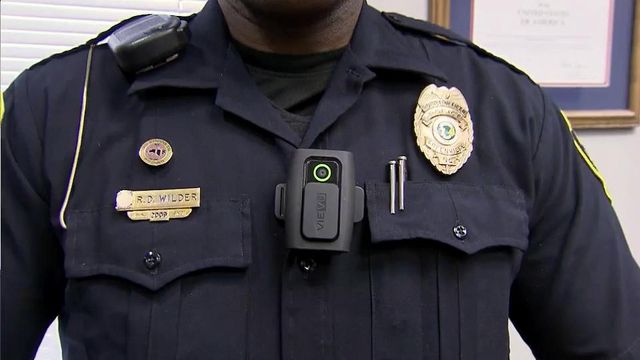Debate continues over NC law limiting access to police body cam footage
Attorney General Roy Cooper says a newly enacted law on police camera footage makes it too difficult for citizens to obtain recordings by law enforcement body cameras and dashboard cameras, while Gov. Pat McCrory insists it allows the public to obtain footage as needed.
Posted — UpdatedThe diverging opinions reflect the ongoing disagreement over the law that McCrory signed on Monday.
How footage recorded by police is handled is a particularly high-profile issue given recent incidents in which police officers have fatally shot black men initially detained for relatively minor infractions.
In North Carolina, police camera footage has been largely treated as a personnel record, making it virtually impossible to access by third parties. The new law does provide a path to access, but initially that would apply only to people who are captured in the video – and then only with agreement from the police chief or sheriff of the officer who recorded the footage. The citizen in question and his or her attorney or other representative could view it but could not copy or photograph it.
A District Court judge could allow other parties, such as news organizations or advocacy groups, to view the video if they present valid reasons why they should be allowed to see it, and if the judge finds the request does not violate seven conditions included in the law, from highly personal content to a potential risk to public safety.
Akiba Byrd, a member of the Raleigh Police Accountability Community Taskforce, said requiring people to go to court will discourage the release of many recordings.
"If a person has an interaction with a police officer and they want access to their footage and make it public after that, they should be able to do it," Byrd said.
Cooper agreed that the new law is too restrictive, leaning too much toward keeping footage secret.
"I would have preferred to have a presumption of public camera (footage), but having some exceptions where we know we need exceptions to protect witnesses, to protect an investigation," he said. "I think what we need to do is to revisit that issue in future legislative sessions. We need to see how this works first and how the courts are going to react to this, because it's important to have these cameras. But at the same time, we may need to provide some improvements to the legislation."
McCrory said Cooper never raised those objections as lawmakers debated the proposal last month.
"The bill is a common-sense approach and a balance between respecting the rights of our police officers while balancing the public's need to know," he said.
Cooper, a Democrat, is running against McCrory, a Republican, in this fall's gubernatorial campaign.
Wake County Sheriff Donnie Harrison said there are too many cases where making video public would invade people's privacy, such as a domestic violence situation or a case involving juveniles.
"It’s hard to come up with when you can, and we don’t. We try to look at it from both perspectives," Harrison said. "We want to be out front. Let people know what we do. We don’t want to hide anything."
Byrd said keeping footage out of the public view leads to that impression, however.
"I think what the governor is doing is potentially giving the police stations the opportunity to criminalize and over-police its citizens without any accountability and transparency, and that’s not going to do anything to develop relationships or instill trust between the two," he said.
He urged people to use their own phones to record interactions with law enforcement and share it publicly, calling it "the people's body cam."
• Credits
Copyright 2024 by Capitol Broadcasting Company. All rights reserved. This material may not be published, broadcast, rewritten or redistributed.






